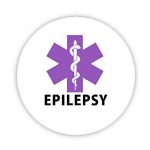Health Related Quality of Life in Children with Epilepsy (CHEQOL)

Summary
To answer a need to include and accurately measure the impact and burden of epilepsy in affected children, Dr. Gabriel Ronen, Dr. David L. Streiner and Dr. Peter Rosenbaum at McMaster University, developed the Health-Related Quality of Life in Children with Epilepsy (CHEQOL).
The CHEQOL is a validated self-report and parent proxy respondent health-related qualify of life instrument that measures how preadolescent children with epilepsy are affected by the disease. This tool is easy to administer and suitable for children who are 8 years and older and their parents. The parent proxy measure is useful as a complement to the child self-report measure in evaluating the validity of parental assessment of the child’s health status. It is also used in longitudinal outcome research and in health-related qualify of life assessment of children who are unable to respond independently.
The child and parent questionnaires each consist of 25 questions. It has been licensed out worldwide and 4 translations are now available. The CHEQOL is utilized in academic research and in clinical trials.
To meet increasing demand for electronic versions of questionnaires, the CHEQOL is available in electronic format as well as in hardcopy. MILO is working closely with translation companies to review electronic conversions of all questionnaires in its library. MILO is also continuing to increase the portfolio of validated translations for questionnaires.
Therapeutic Areas
- Epilepsy in children 8 years and older
- Health-related quality of life
Applications
- Academic studies
- Clinical trials
Advantages
- 4 translations available
- Use in hardcopy or electronic
Contact
MILO Business Development

